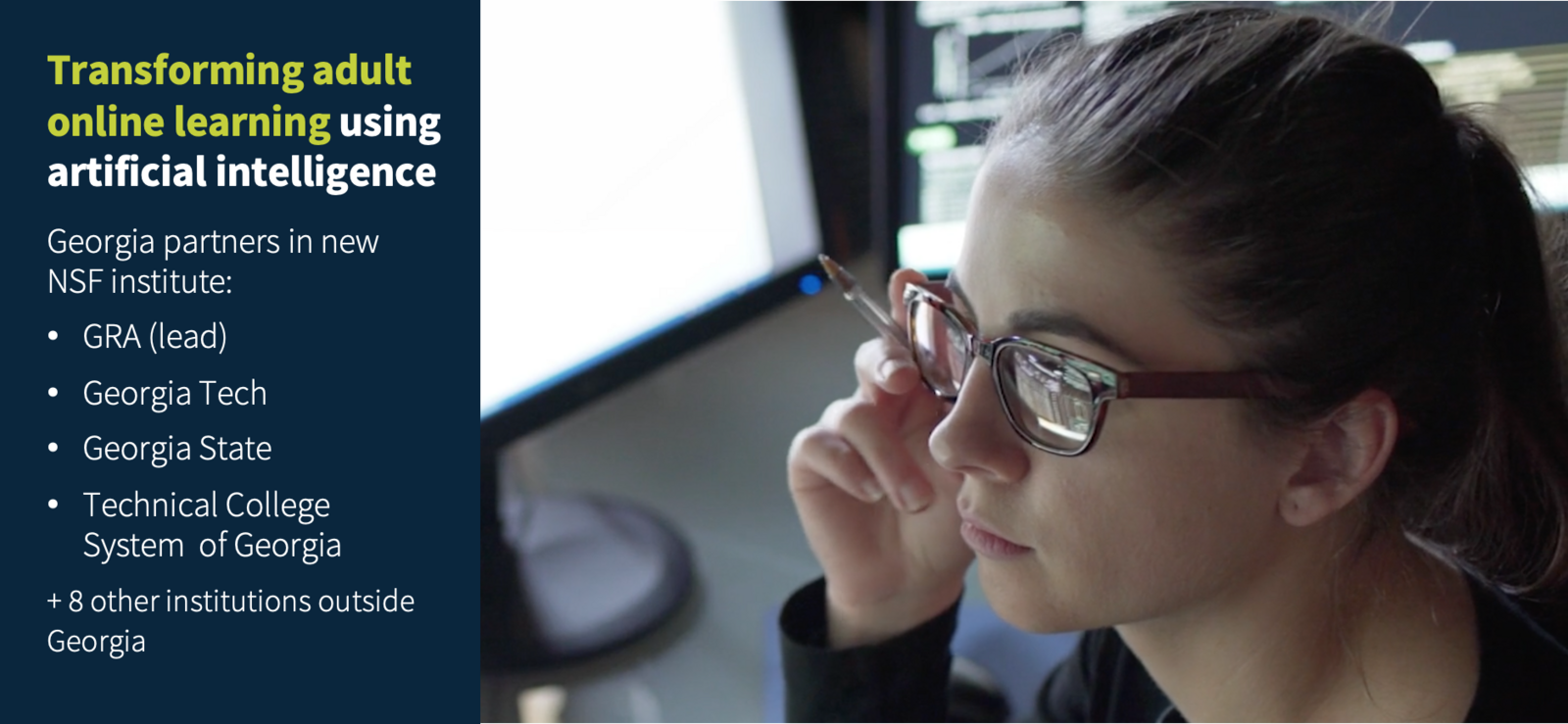How can AI help adults master STEM fields?
A $20M National Science Foundation grant to GRA aims to transform online learning
The COVID-19 pandemic drove many more people to online instruction – not just in schools, but for all kinds of adult education and lifelong learning programs.
It appears that migration wasn’t temporary. Online learning is now a huge component of instructional life for adults.
This relatively new frontier opens up questions to be explored. Like: How do adults engage in instruction via technology differently than in a traditional setting? And how can online instruction be optimized to improve results?
Artificial intelligence (AI) can be used to answer these important questions and others. In 2021, GRA was named to lead an initiative to leverage AI to transform adult learning in STEM fields.
Funded with a $20 million grant from the National Science Foundation, the initiative unites experts – across a dozen partners – in computer science, AI, cognitive science, learning science and education. It’s called the NSF AI Institute for Adult Learning and Online Education (ALOE), and it’s headquartered at Georgia Tech.
The ALOE Institute represents a consortium of several universities – Arizona State, Drexel, Georgia Tech, Georgia State, Harvard and UNC-Greensboro). It also brings in the Technical College System of Georgia as well as major industrial partners (Boeing, IBM and Wiley) and non-profit organizations (the IMS Global Learning Consortium).
GRA’s initiative builds on a solid infrastructure in Georgia for advancing AI as a field. A few recent developments:
- Georgia Tech was also named to lead two NSF AI institutes in 2021. The NSF AI Institute for Advances in Optimization (AI4Opt) will revolutionize decision-making on a large scale; and the NSF AI Institute for Collaborative Assistance and Responsive Interaction for Networked Groups (AI-CARING) is using AI to improve quality of care for the aging.
- GRA Eminent Scholar Larry Heck, a trailblazer in using AI to develop speech recognition and digital assistants, was recruited to Georgia Tech in 2021. His research includes building a fully embodied digital assistant (in avatar form) that can engage in intelligent conversation.
- Other universities in Georgia are building their own critical mass in AI research and education (Example: the University of Georgia is hiring a cluster of eight faculty in the field)
Read the July 2021 announcement of GRA’s designation to lead the new institute >

